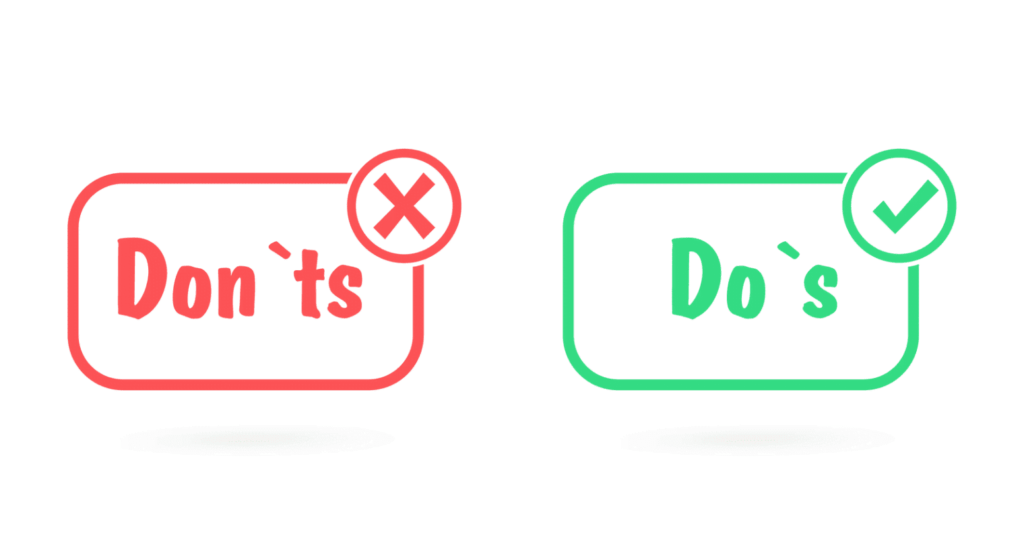One of the biggest questions in anyone’s mind when they decide to start their own website – be it for their baking business or for running their own blog – is how they’re going to manage the SEOand how they’re going to get their website noticed.
The right SEO strategy can make all the difference when it comes to your website, but alas, there’s no step by step guide that’s guaranteed to work for you, and SEO is all about trial and error, and developing a unique strategy that suits your content.
Many companies use a white label reseller program for their SEO needs, and you can outsource your SEO requirements just like them. But if you would rather work on SEO yourself instead of paying an agency hundreds of thousands of dollars a month, keep reading to find out about some essential do’s and don’ts in your SEO strategy.
The Do’s
- Test Your Website on Multiple Devices
A majority of users these days use the internet on their mobile phones, which is why it’s essential that you test your website and it’s performance not only on a desktop but also on a phone and a tablet.
This way you can be sure that even on the phone, the size of all your fonts and any media on the website is just fine and stays visually appealing. This is important because a lot of people won’t want to spend too long on your website or trust anything on it if it looks unprofessional or poorly made.
- Have a Target Audience in Mind
A popular saying in marketing is that if you’re talking to everyone, you’re not actually talking to anyone. Every marketing expert will agree that their efforts bring much better results if they’re speaking to a particular audience and if they’re actually tailoring their content to present solutions to the problems they face, and how their product can help them.
The same thing applies to your website – if you choose your target audience and talk about their problems, and address them specially, they’ll be more likely to listen. But if you’re not talking to anyone in particular, everyone will say “this content is not for me” and leave the website.
- Be Consistent
Google loves consistency, and it’s more likely to show websites that are frequently updated on the first page of it’s search results. Not only this, but your audience too is more likely to trust any information you give them if they know this website is active and the people behind it are responsive.
- Build Trust With Your Audience
We’ve mentioned building trust with the audience a couple of times because this should be a very important part of your SEO strategy. Not only does it make sense to make it clear to your audience that you’re a credible source of information, but it also makes it more likely for other people to cite the information you provide as credible, and to treat you as a trustworthy source. This, in turn, leads to backlinks, social media shares, and a lot of buzz that google’s algorithms will take into account when deciding where to rank your website in their search results.
5. Include FAQ’s
Google has recently started showing a series of related questions (and their answers) in its search results. Including FAQs in your own blog and clearly answering questions in the text now makes it more likely for you to be ranked higher, and for content from your blog to be featured in that portion.
It also helps users on your website find the information they need pretty quickly and provides more value to them.
6. Use SEO Tools
SEO tools are a great way to track your progress, do keyword research, figure out what other websites are doing that you can copy, and so much more. Using the right tools can also give you a fighting chance when you’re trying to get your new website to rank among industry giants with much better online reputations.
The Don’ts
7. Stuff Keywords
Keyword stuffing is never a good look for any blog, and it makes you look desperate. If you try to use too many unrelated keywords, you can even end up at the bottom of the barrel (which would be page two or beyond of the google search results for any keyword) because search engine algorithms are getting better and better at spotting these kinds of tactics.
8. Ignore Search Intent of Keywords
If you try to get your work about pastries to rank for a keyword that is more definitely not related to pastries, like pasta, for example, your website is likely to fall in ranking and be forgotten. This is because even if google doesn’t notice what’s in your website – which it will – it will notice that no one seems to be interested in your web page even if it’s right there in the search results, and then replace your website with something that will keep users on their search engines and platforms for longer.
9. Buy Backlinks
This is actually illegal, which means that any attempt at buying poor quality backlinks (links in other websites and blogs that lead back to your own website – they really improve a website’s reputation in a search engine’s eyes) will be penalised heavily.
Instead, you should focus on creating high quality content that people link to simply because it’s useful.
10. Use Click-Bait to Get Attention
Cheap marketing tactics are simply not going to work. Not only are search engines great at figuring you out, but even readers and end consumers are aware of what title seems like an exaggeration or a lie.
You can use titles like “best ways to lose weight” or “I tried a weightloss challenge, here’s what I think”, but if you use “You will NOT believe what happened when I tried this!! Click to find out my ultimate secret!!” and then underdeliver in the content itself, you’ll start being known for all the wrong reasons in the online community.
11. Ignore Social Media
Social media and off-page SEO are very important. Make sure you have ways for your readers, clients, or visitors on your website to reach you if they need to, and to find out more about you. You can even try setting up social media accounts and promoting the content on your website on it – it’s a great way to get your website some traction before it starts getting noticed in search results.


